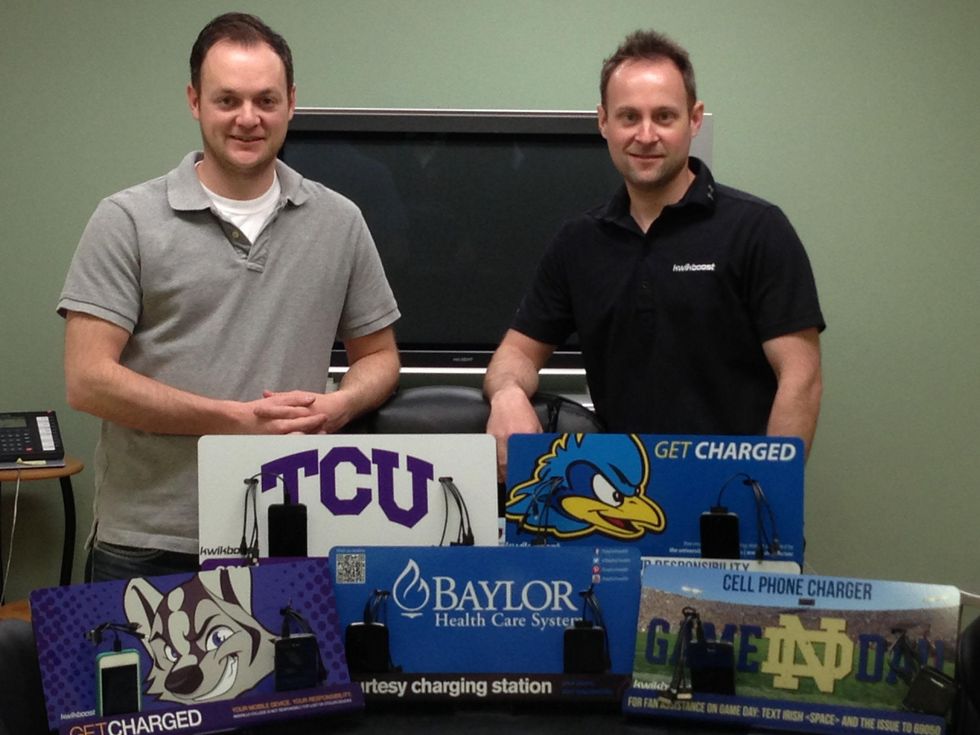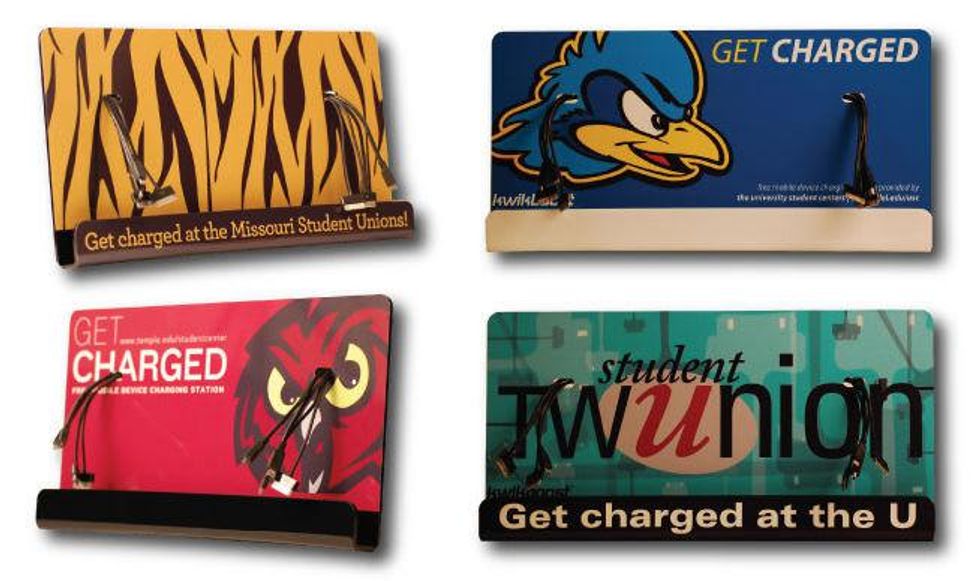Modern Marvels
Dallas brothers save smart phones from death one free charge at a time
The dead smart phone. It’s a modern-day tragedy, akin to the hopelessness pioneers heading west in buggies must’ve experienced when they lost the trail. It’s the kind of dreaded disconnect that Dallas-based Kwikboost hopes to eradicate with its mobile device charging stations, which offer free charges in times of need.
The brainchild of brothers Joe and Paul Mecca, Kwikboost builds charging stations that hold four or eight cables while working off one outlet. The idea came about in 2009, when TXU contracted with the Mecca’s custom displays family business.
“[TXU] wanted something unique, so we developed a charging station with a display for their name,” Paul says. “They loved the idea and put them in at the American Airlines Center. We saw how much use they were getting and then looked at smartphone adoption rates and saw there was going to be a problem.”
“Nobody planned for the mobile phenomenon,” says Kwikboost co-founder Joe Mecca. “We all rely on devices that rely on power.”
After experiencing too many dead phones themselves, they decided it was a problem worth solving, and they were the ones to do it. After about a year of research and development, the brothers launched Kwikboost in January 2012.
Since then, their stations have charged more than 2.5 million devices at universities, car dealerships, hospitals, bars and more — at no cost to the consumer. Joe says the need for an on-the-go charge has exploded with higher adoption rates of devices that often lose their charges by the end of the day.
“The student had one device five years ago,” Joe says. “Now it’s three. Nobody planned for that when they built the buildings. That goes for everywhere. Nobody planned for the mobile phenomenon. We all rely on devices that rely on power.”
Although airports and other places offer charging kiosks, they often do so for a price. For the Meccas, the ability to charge your phone for free seemed like a natural right.
“We see this as a service-oriented product like Wi-Fi or bathrooms,” Paul says. “We hear from our clients that it’s a differentiator — one more amenity that keeps people coming back to their business.” The increased business offsets the cost of the charging station.
“You could charge $2 and maybe make $1,000 a year,” Paul says. “But if you offer it for free, 20 times more people will use it and have a positive experience with your brand. We believe you’ll see a bigger return. Starbucks knew that making its Wi-Fi free would have a much bigger impact.”
The Meccas expect Kwikboost to charge more than 10 million devices this year as they expand to more locations with more distributors.
“A year ago, it was just me and Joe,” Paul says. “Now we’ve got resellers all over the world. Our reach has grown tenfold.”
The brothers believe that their free stations will ultimately beat the charging kiosks due to affordability and overall goodwill.
“Solving this problem is important for us,” Paul says. “At the same time, like any problem, it needs to be done efficiently and affordably. When your phone dies, it’s an emergency situation no matter what. You don’t want to be disconnected from the world.”


